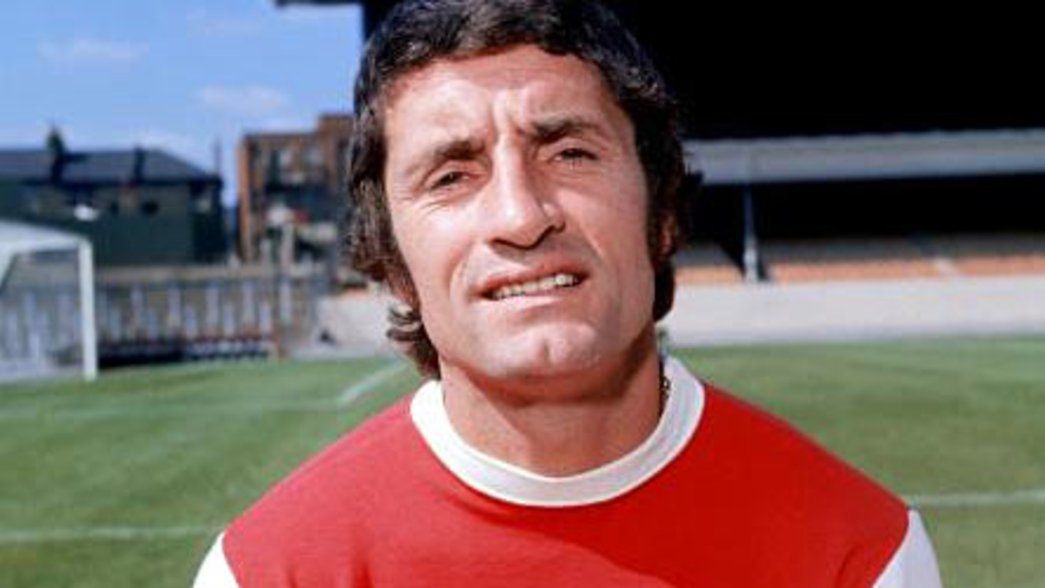Every great team requires a great leader. Bertie Mee's 'Double' winners had just that in Frank McLintock.
But it wasn't always that way.
When the Scottish international arrived in north London for less than £100,000, manager Billy Wright believed the lean wing-half to be a sound bit of business. He was, eventually. It took five years and a switch of roles for the promise to come to fruition.
In his original position McLintock's tireless work rate, enthusiasm and commitment could not be questioned. But it was that very same anxiety to contribute all over the field which often proved his downfall, his ill-advised wanderings over-burdening his team-mates.
Then came an injury crisis in 1969/70 and coach Don Howe drafted a somewhat reluctant McLintock into the heart of defence. It was a masterstroke in every sense. The Scot thrived and swiftly earned the captain's armband.
The 'old Frank' was replaced by a more level-headed, mature man. He demonstrated an outstanding reading of the game and, while his enthusiasm of the early years remained, it was now being used to optimum effect.
McLintock's on-pitch demeanour demanded respect. He led by example and hauled his side out of the doldrums on more than one occasion. Leading the way in over-turning a 3-1 first-leg deficit against Anderlecht to lift the Inter-Cities Fairs Cup in 1970 was the prelude to his finest season.
In 1971 the Scot was master in command as Mee's men battled on two fronts domestically. With the League title already in the bag, Arsenal were staring FA Cup Final defeat in the face when they fell behind in extra-time to a goal from Liverpool's Steve Heighway. McLintock wasn't losing this one - he already had three Wembley runners-up medals. With his fists aloft he roared at his down-hearted team that the match was far from over. The rest, as they say, is history.
McLintock ended the campaign with the accolade of Footballer of the Year; an MBE followed a year later. He finally left the Club in 1973 safe in the knowledge that he had etched his name in Arsenal folklore.











